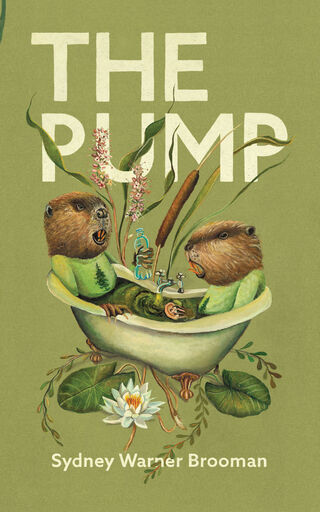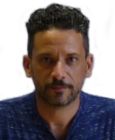Identity
Understanding Dissociative Identity Disorder (DID)
Writer Sydney Hegele dispels disconceptions about life with DID.
Posted July 27, 2022 Reviewed by Vanessa Lancaster
Key points
- The media, including film and television, tends to portray DID in sensationalistic or stigmatizing ways.
- A plural's relationships with their alters are often functional, though as complex as any relationship.
- The medical profession should integrate a trauma-informed approach to DID into medical education.

Sydney Hegele, the author of The Pump, recently published a clear-eyed essay about falling in love after their diagnosis with dissociative identity disorder (DID), still widely known by its former classification in the DSM: multiple personality disorder.
In the essay and this interview, Hegele offers a first-person person account of life with DID and dispels widespread misconceptions about the diagnosis and experience of living with it.
In the essay, you make the point that DID is often portrayed in misleading ways in popular culture. It tends to be both sensationalized and stigmatized, but also just plain misunderstood. What would you like people to know about DID? What misconceptions do you hope to dispel?
On a basic level, I’d like more people to know that dissociative identity disorder is real. It seems silly to be starting by supporting the validity of a disorder whose diagnostic criteria are in the DSM-5, but I've encountered a lot of medical professionals and therapists alike who simply don't have a trauma-informed practice and aren't equipped to treat trauma disorders.
Some of this is because of the ways DID is sensationalized in the media. When we're shown a representation of the disorder that looks theatrical, it makes sense that we'd either think that the disorder isn't real or that we'd know it as soon as we saw it.
In reality, DID is often diagnosed later in one's life because it tends to present covertly at first, hidden from even the patient themselves. You'd be unlikely to be able to pick someone with DID out of a crowd in public. When I switch in an environment that my brain doesn't think is safe, there's automatic masking that takes place, and the other alters in my system will pretend to be me. This makes it difficult to even notice someone else's switch if you aren't tuned in to what to look for.
Hopefully, most psychologists, psychotherapists, and social workers are also aware that traumatized people aren't more likely to enact violence on other people than a neurotypical person. When DID is represented in media, there's often a 'serial killer trope’ where one alter in a system has violent tendencies, and that's a really harmful misrepresentation.
Those are the misconceptions that I think are most important to dispel about DID. Dissociative identity disorder is real, can present covertly, and isn't an inherent indicator of violence towards others.
One exciting thing about your essay is that it’s a portrayal of DID from a first-person perspective, in the context of a life and relationships—your life, your relationships. Can you think of any other valuable portrayals of DID experience? Is there any reading, viewing, or listening you recommend?
Recently, I watched and absolutely loved Marvel's Moon Knight. Though it's a highly 'dramatized' show, Oscar Isaac and the show's head writer Jeremy Slater obviously did immense research when it came to the depiction of dissociative disorders. Some of the show's quieter scenes are very accurate to my experience, and there's an in-depth healing journey that takes place within the narrative that’s pretty clearly symbolic of the concepts of full integration, and functional multiplicity within one's DID system.
I'm a firm believer in having a wide range of representation. I'd like to see shows and movies about superheroes with DID and parents with DID, and romantic partners with DID. Getting to see myself represented as a superhero was an experience like no other and something I'll cherish for a long time. The only critique I would give them is that they desperately need someone with DID in their writer's room. Jeremy Slater— hit me up!
You mentioned romantic partners and covert switching. In your essay, you tell a story about the first time you switched in the presence of C, your partner. "My partner now knew my brain in a way that I myself did not. He met someone with memories that weren’t mine,” you write. He becomes a witness to your experience. How has learning to be comfortable with C as witness and partner shaped your sense of self?
I'm very much of the belief that humans can heal both individually and in relationship with others, meaning that for some people, they won't necessarily "love themselves before they love someone else."
My relationship with my fiancé has helped me on my individual healing journey, and that individual healing journey has helped my romantic relationship: they are symbiotic. Healthy relationships of all kinds—platonic, romantic, sexual, strong work relationships, or therapist relationships—give people the time and space to unlearn that they are constantly in danger and learn who they really are for the first time.
Who am I when I am safe, comfortable, and can make choices without fear of punishment, shame, or abandonment? When we are in relationships that are unhealthy, most of our mental energy is simply put towards surviving, and I'm positive that it stunts our ability to be curious, explorative, and playful when trying to figure out what we like and what we're good at.
So much of healthy bonding is about witnessing—making space for another person to feel heard, seen, and understood. I don't think that the development of my sense of self is related to my partner's witnessing of my DID so much as it's related to his witnessing of me as a whole, which should be happening in any close relationship (if this is the kind of relationship that all parties have agreed to!).
As you write, "Every DID system experiences switching differently.” It seems important to stress the fact that no two people with the same diagnosis will have identical experiences—and that sometimes they vary widely. For people who don’t know, will you describe your relationship to your alters, and the different forms switching takes for you? Are you aware of other forms of switching that you don’t tend to experience?
In my experience, switching not only varies across different DID systems but also varies within a system. I've had switches that took less than a second and were covert, and I've had switches that lasted hours or days and were more overt.
When I have better communication with an alter, I can sometimes see and hear what they're doing when they're fronting, but if I don't have communication with an alter, I'll experience a complete loss of time and be unaware of what occurred while the alter was fronting. I really can't speak for the community as a whole, though; my experiences are my system's alone.
Relationships within a system are a tremendously personal thing. We're talking about a trauma disorder, childhood trauma in particular, and all alters form as a trauma response in some way or another, so when people within systems choose to talk about system relationships, they're opening up a vulnerable part of themselves and quite literally revealing their brain's trauma responses.
Every person with DID or OSDD will have different boundaries of comfort when it comes to sharing their story. Some people are very open, and others don't talk about it much, and others share their story through artistic expression. Ultimately, you get to decide what's best for your healing and the healing of your system—no one gets to decide that for you.
My personal healing journey involves an artistic approach: slowly writing pieces over time that honor the relationships I have with alters in my system who are comfortable having information about them publicized. There are plenty of alters in my system who I likely won't ever write about, and that's okay!
You’re a writer. Do some of your alters get involved in your writing process? How would you say DID affects your writing?
I actually have a piece about this very thing coming out in Electric Literature this year, so I won't tackle it too in-depth. What I will say is that two of my alters have learned throughout my life how to act exactly like me, how to communicate with me when they’re out, and I’m not, and how to continue writing something that I started.
But there are other alters in my system who have no ability to mask. They can’t act like me, let alone write like me. When those alters are more active or ‘closer’ to the front of my mind, I can’t write at all. This is my experience when writing fiction—nonfiction/essay writing tends to be very different! More of a team effort, asking others to fill in gaps for me.
How much community exists for people diagnosed with dissociative identity disorder?
There are definitely spaces out there where systems can meet one another, share experiences, and access resources. I'm still in the process of navigating a lot of that myself—trying to engage with other survivors in a healthy way without feeling like I have to serve as a representation for an entire mental illness whenever I share anything.
A non-profit-run community that I always recommend to other systems is The Plural Association. There are also private Facebook groups for people living with DID and OSDD.
Ultimately, when you engage with any community, but particularly when you engage with a community surrounding mental health, it's important to ask yourself some questions:
- How is my participation in this community helping me on my healing journey?
- How am I ensuring that I'm getting my medical/formal diagnostic information from a professional source?
- How do I ensure that my understanding of DID as a day-to-day experience of mental illness is represented by a variety of voices from a variety of intersections rather than just one?
- What boundaries can I set in place for myself (how often I'm online, who I follow, what kinds of conversations I engage with) to ensure that my experience of community is one that helps instead of harms (myself and others)?
What resources would you recommend for people living with DID, people in their lives, or people who simply want to understand it more fully?
On TikTok, I'd recommend @sometimesgimena and @the_enigma_system (Lance Cooper). I have a TikTok (@sydneyhegele) where I talk about DID representation in shows like Marvel's Moon Knight and share a bit of my day-to-day experience living with DID, but the account has always been and will continue to be for fun, and my videos should never be used as a representation of all systems, or a replacement for professional advice.
I also recommend these resources:
- Living with the Reality of Dissociative Identity Disorder: Campaigning Voices, edited by Xenia Bowlby and Deborah Briggs, is a valuable book.
- System Speak is a podcast hosted by Emma Sunshaw: Diagnosed with dissociative identity disorder, Emma and her system share what they learn along the way about DID, dissociation, trauma, and mental health.
- The Plural Association is a non-profit community offering a range of resources and opportunities for education and connection.
References
Hegele is the author of The Pump (Invisible Publishing 2021). They are the winner of the 2022 ReLit Literary Award for the best Canadian books published by independent presses and a finalist for the 2022 Trillium Book Award.
Their poetry chapbook, The Last Thing I Will See Before I Die, is forthcoming from 845 Press in 2022.
Hegele is also a Tin House Summer Workshop Alumnus (2021), and they has recent work published in Catapult and Electric Literature (forthcoming). They live with their fiancé and French Bulldog in Tkaronto (Toronto, Canada).




